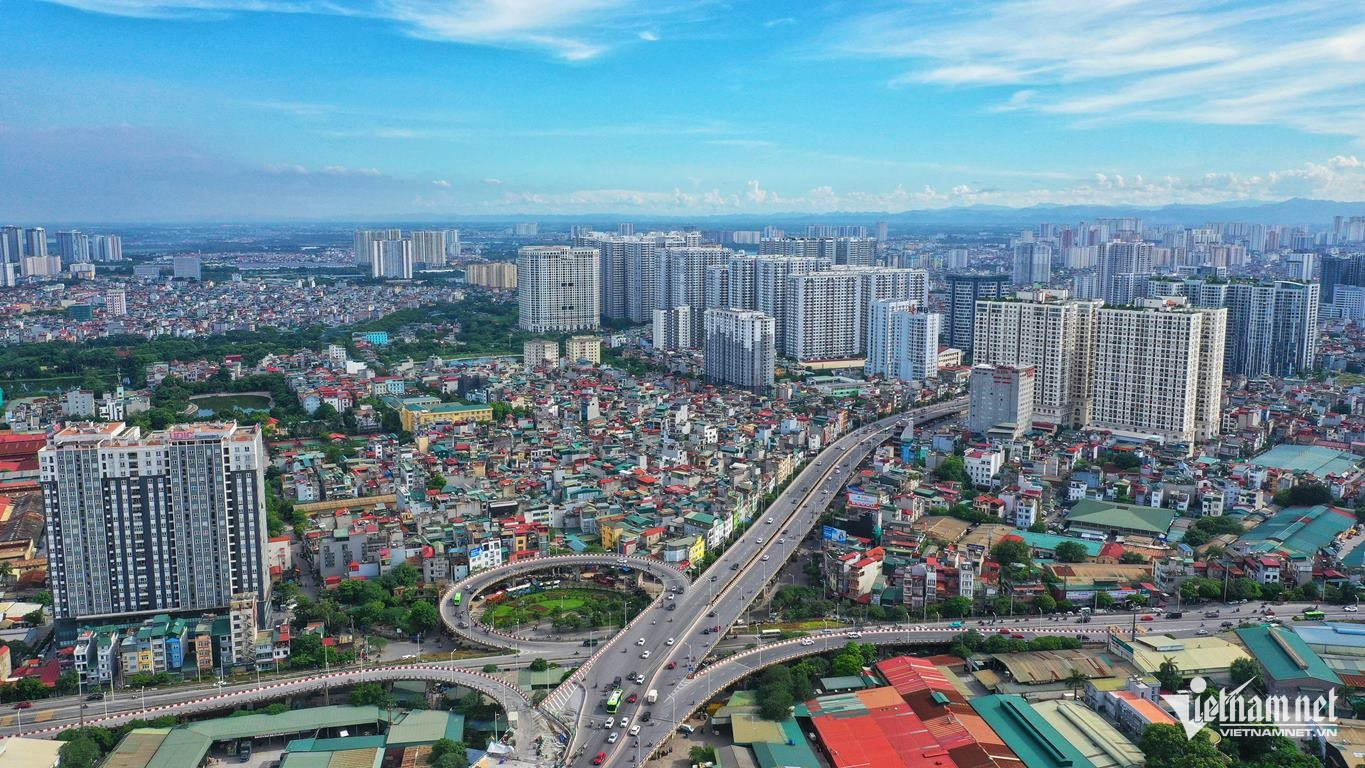
Housing prices in Vietnam have reached alarming levels, equating to 60 years of an average worker’s income, according to economist Le Xuan Nghia. This far exceeds the International Monetary Fund’s (IMF) recommended maximum of 30 years, raising concerns of a real estate bubble.
During the “Vietnam Real Estate Market: Ready for a New Era” forum on December 27, Deputy Minister of Construction Nguyen Van Sinh highlighted positive developments in the country’s real estate market, driven by effective government policies.
He revealed that the Government Task Force had resolved issues in 129 out of 750 problematic real estate projects, addressing challenges related to land-use fees, site clearance, project adjustments, and planning.
Additionally, the National Assembly passed four significant laws impacting the real estate sector: the 2024 Land Law, the 2023 Real Estate Business Law, the Housing Law, and the Law on Credit Institutions. The government and relevant ministries have issued guidance for implementing these laws.
According to reports from local authorities, the supply of commercial housing in 2024 increased by 8.6% compared to 2023. Several stalled projects have resumed construction, signaling optimism in the market with the support of new legislation.
Regarding social housing, Deputy Minister Sinh stated that 644 projects comprising 580,000 units are underway nationwide. Of these, approximately 57,000 units have been handed over to residents.
Currently, 133 projects, accounting for 110,000 homes, are nearing completion, while more than 400,000 units are in the planning and investment phases for launch by 2025.
Sinh emphasized that promoting social housing is crucial for increasing supply and restructuring the real estate market toward sustainable growth.
Escalating housing prices
Economist Le Xuan Nghia noted that the IMF recommends housing prices not exceed 30 years of a worker’s income to prevent a real estate bubble.
“In Vietnam, housing prices are roughly equivalent to 60 years of a worker’s income, reflecting a staggering increase,” Nghia remarked.
Citing a recent survey, economist Can Van Luc, Chief Economist at BIDV Bank, highlighted that it takes the average Vietnamese citizen about 23.5 years of income to afford a mid-range home. This is significantly higher than the global average of 14.5 years.
Luc pointed out that from 2019 to the present, Vietnam has experienced the fastest property price growth in the region, particularly in housing and land plots.
“Despite limited supply and genuine demand, real estate transactions have stagnated. Why?” Luc questioned.
He explained that while bank lending to real estate rose by 9.15% in the first nine months of the year, loans for home purchases only increased by 4.6%. This indicates that people are reluctant to borrow for home buying, despite available capital.
Luc proposed several solutions to address the challenges in the real estate market, with a focus on increasing supply.
“We’ve suggested the government launch an affordable housing credit package. The Ministry of Construction has proposed an initial fund of 60 trillion VND (approximately $2.4 billion USD), with half sourced from central government bond issuances and the remainder from local budgets,” he said.
He also called for the removal of obstacles in long-dormant real estate and land projects to unlock significant supply potential.
Luc stressed the importance of establishing a comprehensive database on land, housing, and real estate to ensure market transparency.
“Under the Real Estate Business Law, the government is required to intervene if property prices increase by more than 20% per quarter. Given the recent steep hikes, further interventions will aim to stabilize prices for buyers and sellers alike,” Luc added.
Market outlook for 2024
The Vietnam Association of Realtors reported an anticipated 50% increase in real estate products in 2024, totaling 81,000 units compared to 2023. New market entries are projected to reach 65,376 units, nearly three times 2023 levels, though still only 7% of 2018 volumes.
Successful transactions in 2024 are expected to exceed 47,000, with a 72% absorption rate of new supply. In the fourth quarter alone, over 20,000 transactions were recorded, nearly quadrupling the same period in 2023.
Apartments dominate the market, accounting for 75% of transactions. Over half of primary transactions are driven by investment and speculative demand.
Nguyen Le